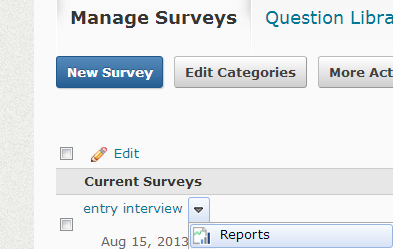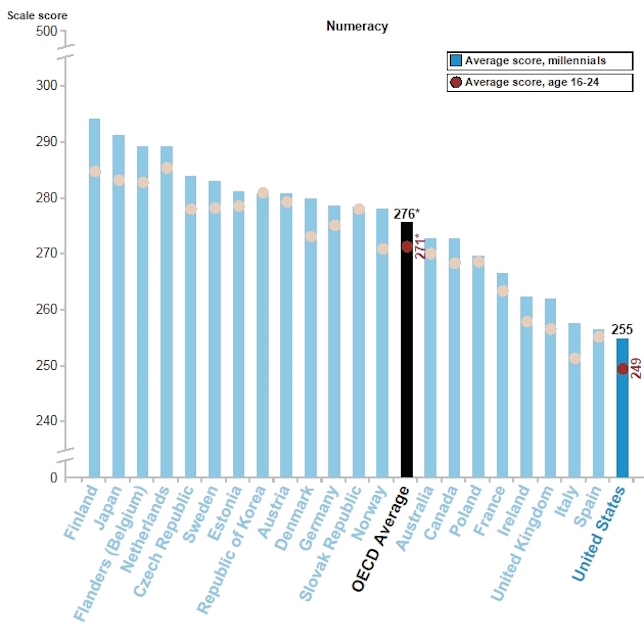Searching for "teach"
5 Excellent Videos to Teach Your Students about Digital Citizenship ~ Educational Technology and Mobile Learning
bibliography:
Ramspott’s blog entry best written for my personal taste, but here is a long list of additional and similar opinions:
Bramman, R. (n.d.). Digital Identity Essentials: Understanding Online Etiquette and the Rules Social Media Engagement. Research Personal Branding. Retrieved October 3, 2013, from http://www.reachpersonalbranding.com/digital-identity-essentials-understanding-online-etiquette-and-the-rules-social-media-engagement/
Dalton, J. C., & Crosby, P. C. (2013). Digital Identity: How Social Media Are Influencing Student Learning and Development in College. Journal of College and Character, 14(1), 1–4. doi:10.1515/jcc-2013-0001
++++++++++++++++++++++++++++++++++++++++
Teach Digital Citizenship with … Minecraft
http://askatechteacher.wordpress.com/2013/10/03/teach-digital-citizenship-with-minecraft/
In the summer, there was an article about physics professor using Minecraft, but that’s not new because an MIT physics professor was using rap in the down of podcasting to teach physics and then another one later on was using Second Life. All of them gone by now…
From: Ewing, M Keith
Sent: Monday, September 30, 2013 4:43 PM
Subject: Eric Stoller on Digital Identity
A couple of interesting links to comments by Eric Stoller on “digital identity” – which he defines as “made up of their online interactions and exchanges.”
Character Clearinghouse – Interview with Eric Stoller, 2013 Jon C. Dalton Institute on College Student Values, Keynote Speaker
https://characterclearinghouse.fsu.edu/index.php/jon-c-dalton-institute-on-college-student-values/keynote-speakers/925-stoller
Digital Identity Keynote at Curry College (full video is about 63 minutes; includes transcript of the Twitter stream about his talk)
http://ericstoller.com/blog/2013/06/21/digital-identity-keynote-at-curry-college/
Eric might make a good speaker to students (and faculty) …
my (Plamen) note: Keith’s email and his suggestions for readings, e.g.
http://www.degruyter.com/view/j/jcc.2013.14.issue-1/jcc-2013-0001/jcc-2013-0001.xml
connects with “contemplative computing” and Turkle’s disconnect, so I am entering as tags
Q:
How may I download the data collected by a survey done in D2L (I want to use the data on excel).
A:
Go and open Surveys under Assessment in the D2L Nav Bar.
Open the Survey, which needs its data to be exported.
Create a new report


don’t forget to check the box in front of “Teacher” after you scroll down

after creating a new report, go back to surveys, open your survey, scroll down and choose report

The CSV file will be the one, which can be opened in Excel

Q:
Good morning!
I am a new faculty member, in the Department of !!!!!!!!!. I have been waiting my teaching courses to be listed on D2L, but still I cannot see them. It’s maybe because I am still listed as “Staff” instead of “Professor.” Could you please check this out for me?
A:
Good morning !!!!!!
Please have directions from the IMS blog (keep in mind using it as FAQ regarding D2L) how to request D2L courses:
https://blog.stcloudstate.edu/ims/2013/05/09/d2l-course-request/
If you log into that dbase, you will see the following picture:

which means that you, your department [chair] and Records and Registration must enter you as the Instructor of Record (what you call “Professor”)
Only after that you will see in the above-mentioned dbase your name and you will be able to request your D2L course.
We are not able to do more on our side.
THank you and let me know, if more questions.
Plamen
http://diyubook.com/2013/07/the-mooc-is-dead-long-live-open-learning/
We’re at a curious point in the hype cycle of educational innovation, where the hottest concept of the past year–Massive Open Online Courses, or MOOCs–is simultaneously being discovered by the mainstream media, even as the education-focused press is declaring them dead. “More Proof MOOCs are Hot,” and “MOOCs Embraced By Top Universities,” said the Wall Street Journal and USA Today last week upon the announcement that Coursera had received a $43 million round of funding to expand its offerings;
“Beyond MOOC Hype” was the nearly simultaneous headline in Inside Higher Ed.
Can MOOCs really be growing and dying at the same time?
The best way to resolve these contradictory signals is probably to accept that the MOOC, itself still an evolving innovation, is little more than a rhetorical catchall for a set of anxieties around teaching, learning, funding and connecting higher education to the digital world. This is a moment of cultural transition. Access to higher education is strained. The prices just keep rising. Questions about relevance are growing. The idea of millions of students from around the world learning from the worlds’ most famous professors at very small marginal cost, using the latest in artificial intelligence and high-bandwidth communications, is a captivating one that has drawn tens of millions in venture capital. Yet, partnerships between MOOC platforms and public institutions like SUNY and the University of California to create self-paced blended courses and multiple paths to degrees look like a sensible next step for the MOOC, but they are far from that revolutionary future. Separate ideas like blended learning and plain old online delivery seem to be blurring with and overtaking the MOOC–even Blackboard is using the term.
The time seems to be ripe for a reconsideration of the “Massive” impact of “Online” and “Open” learning. TheReclaim Open Learning initiative is a growing community of teachers, researchers and learners in higher education dedicated to this reconsideration. Supporters include the MIT Media Lab and the MacArthur Foundation-supported Digital Media and Learning Research Hub. I am honored to be associated with the project as a documentarian and beater of the drum.
Entries are currently open for our Innovation Contest, offering a $2000 incentive to either teachers or students who have projects to transform higher education in a direction that is connected and creative, is open as in open content and open as in open access, that is participatory, that takes advantage of some of the forms and practices that the MOOC also does but is not beholden to the narrow mainstream MOOC format (referring instead to some of the earlier iterations of student-created, distributed MOOCscreated by Dave Cormier, George Siemens, Stephen Downes and others.)
Current entries include a platform to facilitate peer to peer language learning, a Skype-based open-access seminar with guests from around the world, and a student-created course in educational technology. Go hereto add your entry! Deadline is August 2. Our judges include Cathy Davidson (HASTAC), Joi Ito (MIT), and Paul Kim (Stanford).
Reclaim Open Learning earlier sponsored a hackathon at the MIT Media Lab. This fall, September 27 and 28, our judges and contest winners will join us at a series of conversations and demo days to Reclaim Open Learning at the University of California, Irvine. If you’re interested in continuing the conversation, join us there or check us out online.
Looking to attend and/or present at appropriate event regarding technology in education?
Please have a tentative list below.
Do you know an event, which is worth presenting/attending? Please contribute!
by Barry Dahl (Greg Jorgensen) - link to a list of conferences regarding e-learning:
http://www.scoop.it/t/e-learning-conferences
campus technology conf. - boston - http://events.campustechnology.com/Events/CT-Summer-Educational-Technology-Conference/Home.aspx
educause - anaheim – October - http://www.educause.edu/annual-conference
devlearn las vegas – October - http://www.elearningguild.com/DevLearn/content/2825/devlearn-2013-conference-and-expo---home/?gclid=CJj7usLCy7gCFdBaMgodeR8AoQ
dist. learning - ann arbor -- ??
iste (intl soc. tech ed) july – Atlanta - http://www.isteconference.org/2014/
aect (assoc education communications and tech) - oct 29 - 2 nov, Anaheim - http://aectorg.yourwebhosting.com/events/Louisville/default.asp
ascd (assoc of supervision and curricular dev) - november 1 - 3, las vegas - http://www.ascd.org/conferences/conference-on-educational-leadership/2013-registration.aspx#payment
salt (soc. of applied learning and tech) - august 14 - 16, reston, VA - http://www.salt.org/dc/washingtonR.asp?pn=wPrices
National Forum on Active Learning Classrooms - august - u of m - http://www.cce.umn.edu/National-Forum-on-Active-Learning-Classrooms/index.html
D2L Fusion - july – Nashville – http://fusion.desire2learn.com
Sloan c - november disney world, florida - http://sloanconsortium.org/conference/2013/aln/registration
QM - october 1-4, Nashville - https://www.qualitymatters.org/5th-annual-conference-2013-0
distance teaching and learning - madison - august 7 – 9 - http://www.uwex.edu/disted/conference/2013_Registration.cfm
LERN - san fran. - nov. 21 – 23 - http://www.lern.org/conference/
CCUMC – october 9-13 – Chicago – http://www.ccumc.org/2013-conference-rates
The United States Distance Learning Association (USDLA) http://www.usdla.org/2014_national_conference/home.html
I was asked for alternative sites to MERLOT (http://www.merlot.org/merlot/index.htm) after I shared my dissatisfaction with MERLOT high prices, e.g., cost for registration.
Here is what I have, pls feel free to add more, Plamen
I looked for somebody to work with me on Sophia when it started in 2012 (since, differently from Merlot, it is a social tool), but there was no interest on campus:
http://www.sophia.org/
also
http://cnx.org/
http://kylearningdepot.org/
http://kylearningdepot.org/
http://livemocha.com/
Here is more:
I met him and talked to him in Grand Forks about 10 years ago:
http://www.tonybates.ca/
http://ocwconsortium.org/
http://gallery.carnegiefoundation.org/
http://hstar.stanford.edu/
http://labspace.open.ac.uk/
http://teaching-with-technology.wikispaces.com/
http://learning.media.mit.edu/
http://sloanconsortium.org/
| Question: How do I dismiss or restore News Items?Answer: https://d2l.custhelp.com/app/answers/detail/a_id/1299
Note that individual users control which items to dismiss from or restore to their view. For example, if a teacher dismisses a News item, it still displays to students.
This feature can be a little confusing because the icon for dismissing is an “X” which most often means “delete.” In this case, the “X” simply means “remove from display” and there is an option to restore the item back into view. |
 |
Free training videos. See http://mnscuims.mnscu.edu/training.html for links to the videos.
Version 10.1 Videos for Teachers
From Desire2Learn Community Site:
Content Overview
User Progress Overview
From Atomic Learning (free):
32 short videos–Content, User Progress, Discussions
From MnSCU:
Content Tool Changes in D2L Version 10.1
User Progress and Discussion Tool Changes in D2L Version 10.1
Version 10.1 Videos for Students
Overview Videos
Millennials comprise the largest generational sector since the baby boomers. As this group enters the job market, training organizations will be forced to find new innovative ways to reach this new audience.
http://www.allencomm.com/3-strategies-to-engage-millennials-get-results/
Schaffhauser, D. (2015). American Millennials Not Terribly Bright When It Comes to Pretty Much Everything That Matters, Analysis Finds.
Campus Technology. Retrieved from
http://campustechnology.com/articles/2015/03/04/american-millennials-not-terribly-bright.aspx
American PISA Scores Drop
12/03/13
The numbers are in from the latest
Programme for International Student Assessment(PISA), and for American students, as
United States Department of EducationSecretary Arne Duncan put it, “It is a picture of educational stagnation.”
The problem is not that our 15-year-olds are performing worse today than before. The problem is that they’re simply not making progress. Students in many other nations are advancing instead of standing still. In a knowledge-based global economy where education is more important than ever before, both to individual success and collective prosperity, our students are basically losing ground. We’re running in place as other high performing countries start to lap us.”
Daniel Domenech, executive director of AASA, the
School Superintendents Association. “The problem we find in American education isn’t that schools are ‘falling behind,’ it is that schools are ‘pulling apart.’ Poverty in America is the real issue behind today’s education gap.
Among the findings: Top-performing countries, primarily those in Asia, place great emphasis on selecting and training teachers, encourage them to work together and prioritize investment in teacher quality. They also set clear targets and give teachers autonomy in the classroom to achieve them.
American Millennials Not Terribly Bright When It Comes to Pretty Much Everything That Matters, Analysis Finds
http://campustechnology.com/articles/2015/03/04/american-millennials-not-terribly-bright.aspx


“This report suggests that far too many are graduating high school and completing postsecondary educational programs without receiving adequate skills,” the report stated. “If we expect to have a better educated population and a more competitive workforce, policy makers and other stakeholders will need to shift the conversation from one of educational attainment to one that acknowledges the growing importance of skills and examines these more critically.”









